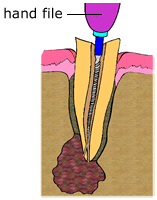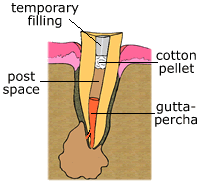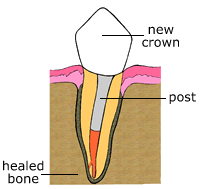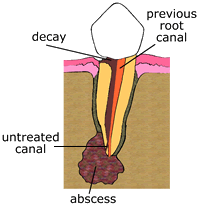Continue Your Journey to Dental Wellness With Root Canal Retreatment

To learn more about root canal retreatment, don’t hesitate to contact Tuckerton Dental by calling (609) 296-1007.
What is Root Canal Retreatment?
Root canal retreatment is a dental procedure performed when a previously treated tooth exhibits persistent or recurring issues. Despite the initial root canal treatment, some cases may require a second intervention to address unresolved problems. This process involves reopening the tooth, removing the existing filling material, and thoroughly cleaning and disinfecting the root canals before sealing them again.
Benefits of Root Canal Retreatment
Your Tuckerton dentist may recommend root canal retreatment due to it’s various benefits, including:
- Preservation of Natural Teeth: Root canal retreatment helps in preserving your natural teeth, avoiding the need for extraction.
- Prevention of Further Infections: By addressing persistent issues, retreatment prevents the spread of infection to neighboring teeth or other parts of the mouth.
- Enhanced Long-Term Success: Successful retreatment ensures the long-term success of the initial root canal procedure, providing lasting relief.
- Improved Oral Health: By resolving issues at the root level, retreatment contributes to overall improved oral health and prevents potential complications.
- Cost-Effective: In comparison to tooth extraction followed by replacement options, root canal retreatment is often a more cost-effective solution.
- Maintains Aesthetics: Retaining your natural tooth through retreatment helps maintain the natural appearance and alignment of your smile.
- Restoration of Functionality: Retreatment allows for the restoration of normal tooth functionality, including biting and chewing, without discomfort or pain.
How to Know If You Need Root Canal Retreatment
- Persistent Pain: If you continue to experience pain or discomfort in a tooth that has undergone a root canal, it could be a sign that the initial treatment wasn’t entirely successful.
- Swelling or Discharge: Swelling or the presence of pus around the treated tooth may indicate an infection that requires further attention.
- X-ray Abnormalities: An X-ray examination might reveal missed canals, inadequate cleaning, or persistent infection that necessitates retreatment.
What Happens During Root Canal Retreatment?

Step One:
After the tooth is “numbed”, the canal system will be reopened to remove the previous root canal material. This may involve removing a crown, post, and core material. Sometimes we are able to make a small hole in the existing restoration and work through that opening. The canals are then thoroughly cleansed and shaped.

Step Two:
The canals are refilled with gutta-percha and the opening is sealed with a sterile cotton pellet and a temporary filling.

Step Three:
The tooth is usually restored within a couple of weeks. If your existing crown can be saved, then you will need to have it repaired. If you do not have a crown, it will probably be recommended.
With time, the bone will heal where the bacteria was removed.
Frequently Asked Questions
Most teeth that have undergone a previous root canal can be retreated if needed. However, the complexity can vary, and retreatment might not be suitable for all cases.
The procedure itself is performed under local anesthesia, ensuring you won’t feel pain during the process. Discomfort post-treatment is usually manageable with over-the-counter pain relievers.
The duration depends on factors like the tooth’s location, complexity, and the extent of the problem. Typically, it can range from one to three appointments.
While maintaining good oral hygiene is crucial for overall dental health, it may not entirely prevent the need for root canal retreatment. Sometimes, factors like the tooth’s anatomy, unexpected complications, or underlying issues can contribute to the necessity of retreatment.
Schedule an Appointment With Dr. Petrosky
Root canal retreatment may sound daunting, but it’s a valuable option for ensuring the long-term success of dental treatments. If you suspect issues with a previously treated tooth, schedule a consultation with your Tuckerton dentist by calling (609) 296-1007 to explore the best course of action. Understanding the process is the first step toward making informed decisions about your dental health.
